This is an adapted excerpt from “The Contemporary Black Church: The New Dynamics of African American Religion,” which will be published by New York University Press in August 2024. Data cited in this article is from the cumulative file of the 1972-2022 General Social Survey.
In recent decades, we have witnessed major structural transformations and cultural developments that have profoundly impacted the Black Church, and these changes have strongly influenced political attitudes and political affiliations among African Americans. Today’s Black Church is primarily comprised of four traditions: Baptists, Methodists, Holiness/Pentecostals, and non-denominational Protestants. Some quick religious history and demographic information sets the tone for understanding changing politics among African Americans; the former traditions were established more than a century ago, while non-denominationals (i.e., nondenoms) were nearly nonexistent but have multiplied their flock several times over since the late 1980s.
Data from the 1972-2022 General Social Survey (GSS) indicates that Baptists comprise the largest Christian tradition in Black America by far at 43%, and they along with Methodists (five percent) help to comprise the “mainline” branch of the Black Church’s denominational family tree. Conversely, Holiness/Pentecostals (six percent) and nondenoms (12%) comprise the “evangelical” branch of the tree. It’s also worth mentioning that the percentage of religious nonaffiliates (or African Americans who do not claim to follow any particular faith) has sharply risen to 20%. In today’s world, religious “nones” are now the second largest religious classification of Black America, and it continues to grow as mainliners (in particular) lose members.
African American political alignments have changed along with their religious affiliations, and this helps to explain a burgeoning diversity within Black America. Black America is not the political monolith that many people inaccurately believe that it is. For example, recent GSS data shows that there has been a double-digit decline—by as much as 43%—in the percentage of self-described political “liberals” among Baptists, Holiness/Pentecostals, nondenoms, and religious nonaffiliates. Most of these ideological switchers now describe themselves as political “moderates.” Furthermore, there has been a double-digit increase in the percentage of African Americans who claim to be political “conservatives” among nondenoms, Black followers of historically white evangelical traditions, Catholics, and religious “nones.” Indeed, only 13% of Black nondenoms claimed to be politically “conservative” in the early 1980s. However, at least 25% do so today, and there is no reason to believe that this slow but steady trend will reverse course any time soon due to changing ideological alignments among African Americans overall.
A driving assumption in the study of U.S. politics is that African Americans overwhelmingly identify as Democrats and consistently vote for Democratic candidates when exercising their right to vote. However, these expectations—like those for Blacks’ political ideologies—can no longer be accepted at face value. It is true that nearly 70% of African Americans across most religious classifications align themselves with the Democratic Party. However, there are some notable exceptions. No less than 77% of Methodists and 74% of Baptists think of themselves as “Democrats,” while only 60% of nondenominational Protestants do so. Moreover, one-third of nondenoms view themselves as “independents,” while more than half of religious nonaffiliates do so. These latter findings are especially important considering that nondenoms and “nones” are the two fastest-growing religious categories among African Americans in the post-Civil Rights era.
To be sure, the strength of African Americans’ affiliation with the Democratic Party has substantially weakened over the decades. In the early 1970s, 78% of Baptists viewed themselves as Democrats. However, only 68% do so now. Nondenoms and Catholics also experienced double-digit declines in alignments with the Democratic Party, while Holiness/Pentecostals, Baptists, and “nones” experienced double-digit increases among members who view themselves as independents. Although a whopping 90% of Methodists affiliate with the Democratic Party today, only 43% of religious nonaffiliates do so. This is by far the lowest percentage for any religious classification in Black America.
It is important to note that while many African Americans are moving away from the Democratic Party, they are not moving towards the Republican Party in any meaningful way. The percentage of Black Catholics who view themselves as Republicans increased by nine percent, while nondenoms and “nones” respectively increased by four percent and three percent. A multifaceted explanation for this boils down to the fact that many African Americans still don’t “trust” the Republican Party to address persistent racial discrimination and inequality. Nevertheless, Blacks’ commitment to social conservativism on various issues (such as homosexuality, for example) remains resolute, and affluent African Americans increasingly believe that they personally stand to benefit from conservative Republicans’ attention to lower taxes and other financial incentives that enhance their earning power. Thus, there is strong reason to believe that Black support for the Republican Party could expand with the passage of time.
What does all of this mean for the upcoming 2024 presidential election between Joe Biden and Donald Trump? In short, we cannot presume that the Black vote will automatically go to President Biden. In an election that will likely be decided at the margins, Biden will have to work to garner segments of the Black vote—particularly nondenominational Protestants and religious nonaffiliates. For instance, (1) Baptists and Methodists are statistically more likely to vote in presidential elections, and when they do vote, they do so overwhelmingly for Democrats. This is primarily because clergy within these mainline denominations led the Civil Rights Movement of the 1950s and 60s (remember, the Rev. Dr. Martin Luther King, Jr., was Baptist). However, (2) nondenominational Protestants are significantly less likely to vote for Democratic candidates than Baptists and Methodists and are twice as likely to vote for Republicans. And finally, (3) while religious “nones” tend to vote for Democrats, they don’t turn out to vote nearly as consistently as Baptists and Methodists. Thus, if the Democratic Party wants to garner the support of these different blocs in Black America, it must figure out a way to bridge a gap between believers who comprise the backbone of the Black vote and nonaffiliates who require an additional layer of motivation to cast their vote since they consider themselves to be “independents.”
So, while President Biden has some work to do, there is room for former President Trump to make gains among the fastest-growing Christian tradition within the contemporary Black Church—those nondenominational Protestant voters who identify as “conservative” and/or might vote for Republicans on the basis of their privileged pocketbook rather than what could seemingly be beneficial for Blacks in general. Trump must also hope that the “nones” sit out this election cycle.
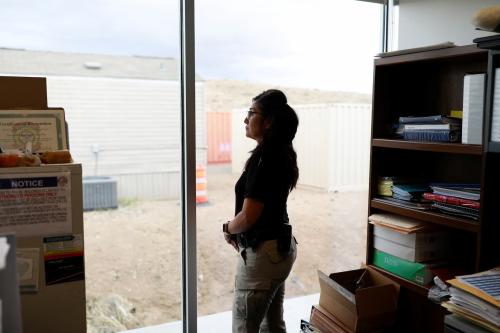
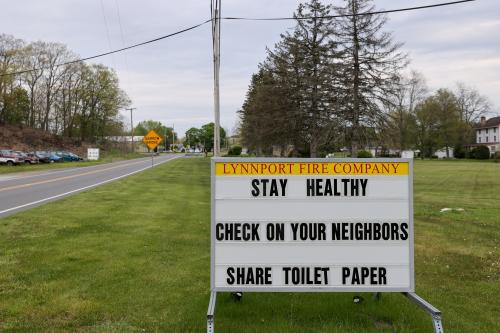
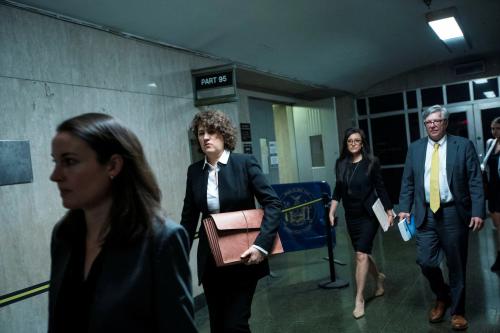
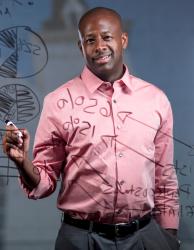


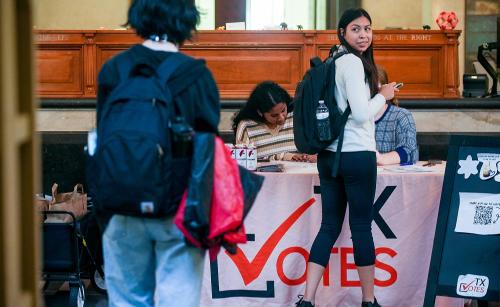
Commentary
The Black Church and the 2024 presidential election
May 15, 2024